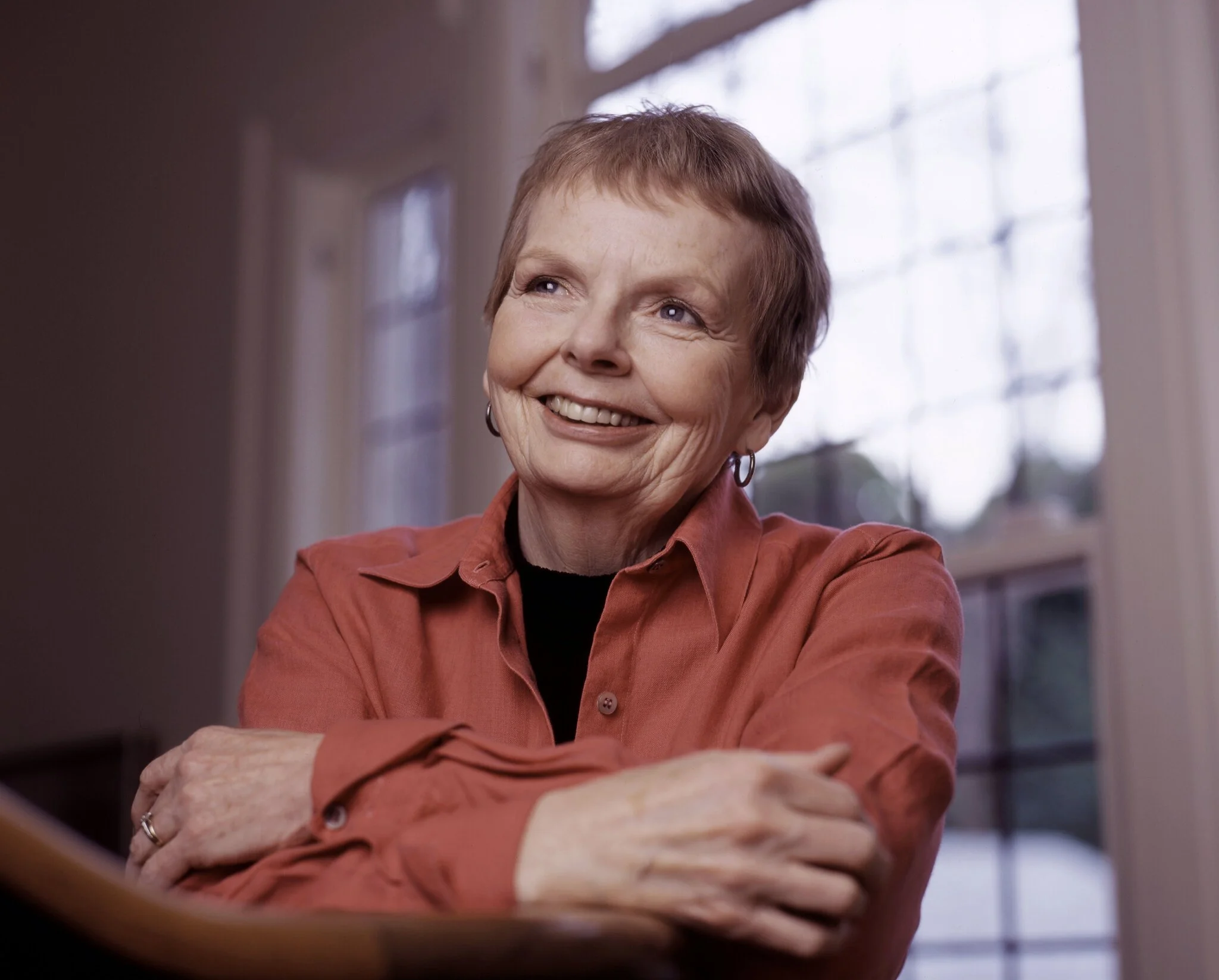Remembering Maryse Condé: Mistress of Her Own Creativity
I interviewed Maryse Condé in St. Elizabeth in Jamaica in 2008 where she was appearing at the Calabash Literary Festival. We met at 4 in the afternoon on the terrace of Jake's -- a collection of whimsically elegant cottages laid out in the heart of Eden. We sat at a small table overlooking the turquoise sea. The combination of sun, heat and saturated colour dazzled our eyes and made us drowsy.
We were joined by her British husband and translator Richard Philcox, and also by a dusty retriever that wandered over, sniffed Condé's shoes and then settled at her feet. "Un horrible chien!" she exclaimed, while Philcox laughed. "Maryse dislikes dogs," he said, "but they always seem to find her."
We met to discuss her novel, The Story of the Cannibal Woman, which is set in Cape Town during the period of the Truth and Reconciliation Hearings against a backdrop of bloodcurdling crime.
The protagonist is Roselie, a Guadeloupean woman whose British husband is murdered one night when he steps out to buy cigarettes. An investigation suggests the crime was not random. As the truth unfolds, Roselie determines she never really knew the man who was the love of her life.
"When her husband dies, she discovers that all her life was built upon lies and this helps her to get to know exactly who she is," Condé told me in her charming French accent.
"Roselie is a painter and she realizes that she was painting to please her partner. And now it is a process of liberating herself, becoming the true mistress of her own creativity."
Outside of francophone and scholarly circles, Condé is best known for her novels I, Tituba, Black Witch of Salem (1987), in which she imagines the life of the slave woman accused of practising witchcraft in the late 17th century, and Windward Heights (1998), a Caribbean interpretation of Emily Brontë's Wuthering Heights. Her first book, Heremakhonon, appeared in 1976, the beloved Segu in 1985. Since then she has published more than a dozen. In recent years, mounting critical praise and the commitment of her devoted, awestruck readers have propelled her into the limelight.
Her novels divide loosely into two groups: dramas of colonial and pre-colonial Africa and those set in struggling, post-independent African nations. They explore colonialism, racism, sexism and politics with sly irony and reveal the author's autobiographical impulse. Condé differs from other major black women writers whose heroines tend to embody and embrace the trajectory of black history, finding succor in a spirit of community. Her protagonists, like Roselie, have no geographical or cultural or ideological home. Their sense of belonging, which is often temporary, lies in the arms of a mother or lover. "The first thing you have to know is that when I am writing I refuse to be a slave of set ideas and ideologies," she explained. "I am trying to express my own opinion on things and I'm trying to make fun of ideas that people always cherish, that for me are totally obsolete and ridiculous."
Condé's black women are profoundly alienated. They express a very French existential angst, which may have as much to do with her own life as with any particular view she might hold. She was born Maryse Boucolon in Point-à-Pitre, Guadeloupe, in 1937 (other accounts say 1934), the youngest of eight children in an upper-middle-class black family. Her parents considered themselves French citizens -- they visited France regularly -- and felt themselves superior to ordinary Guadelopean people, which left young Maryse feeling alienated from her neighbours and island culture.
Later, studying in Paris, she was surprised to learn that her dark skin disqualified her from being accepted as French. In the '60s she moved to Africa and married a Guinean actor. She got caught up in the nationalistic fervour. The couple had four children, but in the long run she could not fit in."The food was different," she said, "the language." The marriage fell apart.
When she first met Richard Philcox in the '70s she could not see herself with a white man. Eventually she determined that between two people "race is not the essential factor," but understanding, "in a word, love."
In the husband department, she does appear to have lucked out. At Calabash, Philcox was sweetly solicitous -- he dotes on her. I spied them at breakfast early one morning where he made certain his wife was seated before heading over to the buffet to get her some breakfast. "Maryse," he called out in French, "they have coffee and tea."
That afternoon, after he and some other writers returned from a boat trip, he strode anxiously by. "What's wrong?" I asked. "We were late getting back from our excursion," he said. "I hate to leave Maryse alone so long."
At Condé's outdoor reading, which took place at night under tumultuous skies, he joined her on the thatched-roof stage. "He is not here as my lover, but my translator," a jovial Condé told the crowd seated beneath the wind-whipped tent. She read first, from the new novel, holding the audience spellbound. Philcox followed with an equally sumptuous excerpt from her luminous memoir, Tales From the Heart.
Maryse Conde, pictured on on September 12, 1986 in Guadeloupe. Conde died April 2, 2024 in southern France at the age of 90. (Photo by Philippe Giraud/Gamma-Rapho/Getty Image)
Condé fell in love with Philcox, even though, as she put it, "England is a country I don't like too much." She admitted, however, that she is drawn to English literature: "It seems to me that my favourite writers belong to England. The writers, all of them, they have something -- they say something -- that is close to me. When I write Windward Heights I am rewriting a book which could be a Caribbean book. With a few transformations Emily Brontë is a voice that I know well."
She added, "You can find your own story anywhere; because I mean the human heart, the complexity of the heart -- the feelings of hatred, of love, of anxiety -- are the same all over the world."
Purchase The Story of the Cannibal Woman and Windward Heights







